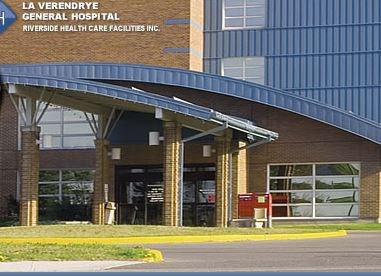NORTHWESTERN ONTARIO - There are so many factors to the health care crisis that is out of the hospital’s control. As a massive amount of people are aging out of the labour force, there aren’t enough labours to fill the demand for staff. Licencing restricts inter-provincial physicians from working in Ontario. International physicians aren’t allowed to work in Canada due to Canada’s medical standards.
However, as emergency departments are closing in parts of the province, Ontario’s Minister of Health Sylvia Jones thinks it’s inappropriate to call our crumbling health care system a crisis.
“Okay, let’s be clear,” Jones sternly begins. “There is not a crumbling system in the province of Ontario. We have a very strong health care system in Ontario. It disturbs me, as I am sure it does many when they find that their local hospital has to close for four hours, a shift, a period of time, but to suggest that it is in crisis is completely inappropriate,” Jones tells Cityline reporter Cynthia Mulligan.
Across the Northwest region, even hospital is struggling to find physicians to fill shift to keep their emergency rooms from closing a lot longer than a shift.
Something, Jones is not acknowledging at the moment is the effect on primary care. As hospital staff try to fill shifts in the emergency department, patient care is being neglected.
The mass exodus from the workforce has left a void in many places. Some of these retirees like long-term locum Dr. Merali retired at the beginning of Aug. according to Mary Berglund Community Health Centre.
“He will be missed by the team here at the health centre and the many clients he sees regularly in the community,” MBCHC wrote in the Ignace bulletin.
The bigger issue is who is going to see those patients now that Dr. Merali has retired.
“People should be able to access care when they need it, in their communities – but this is sadly not always the case,” MBCHC continues. “The situation across the region is dire. A Physician shortage not only affects hospital patients but those who regularly visit their primary care provider. Patient satisfaction is dropping and there is an increased risk for negative health consequences.”
The situation is dire and there just isn’t enough staff.
“The problem is kind of compounded because there is a shortage of health care people in all of the specialties, not just doctors,” said MP Thunder Bay – Rainy River Marcus Powlowski. “For example, in Fort Frances, they said Emo usually has two doctors, but Emo now has one doctor for something like 5000 people, so that doctor can only look after a fraction of those people.”
Powlowski goes on to acknowledge that those people whom that one doctor in Emo can’t see will have to go to an already crowded emergency department.
Sue LaBeau, CEO of Margaret Cochenour Memorial Hospital in Red Lake explains that at times they only have two physicians for their hospital.
“We are still working very hard on recruiting locums and filling our physician’s full-time line,” LeBeau said. “Because we can’t expect two physicians to manage a whole community with a very business emerge, as well as, primary care. And to be frank, that’s what suffering right now in our communities and Northwestern Ontario is primary care.”
At the moment, hospitals across the region are decimating primary care to compensate the emergency departments.
“In the long run,” LeBeau acknowledges, “we are creating more challenges in emergency services because we are removing access to preventive care and early care for patients.”
There is a big difference in payment models between local and locum physicians. Hospitals need to factor in flights, accommodation, and meals for those physicians willing to come north from Southern Ontario.
MBCHS explains, “[f]unding always helps but it is not the only answer to this problem- there is a lack of Physicians and health human resources in general. “You can have all the funding in the world, but without the people to hire – what do you do?”
Liberal MP Marcus Powlowski suggests that the federal government has a role to play in addressing the health care crisis by “establish[ing] a national licensure for doctors,” Powlowski wrote in a release.
Currently, Ontario doesn’t allow out-of-province physicians to work in Ontario hospitals without a licence from the Ontario College of Physicians.
This process might take weeks to go through the bureaucratic red tape to allow out-of-province locum physicians to work in Ontario.
“Right now, the physician credentialing is a barrier. It’s a lot of hoops for them to jump through for inter-provincial practice,” Sue LaBeau, CEO of Red Lake Hospital, said.
Currently, MP Powlowski is planning to meet with several national healthcare groups including the College of Physicians and Surgeons and doctor’s organizations to finalize his recommendations, while the current Ontario government plan is to do nothing and ignore the problem in hopes it will solve itself.
